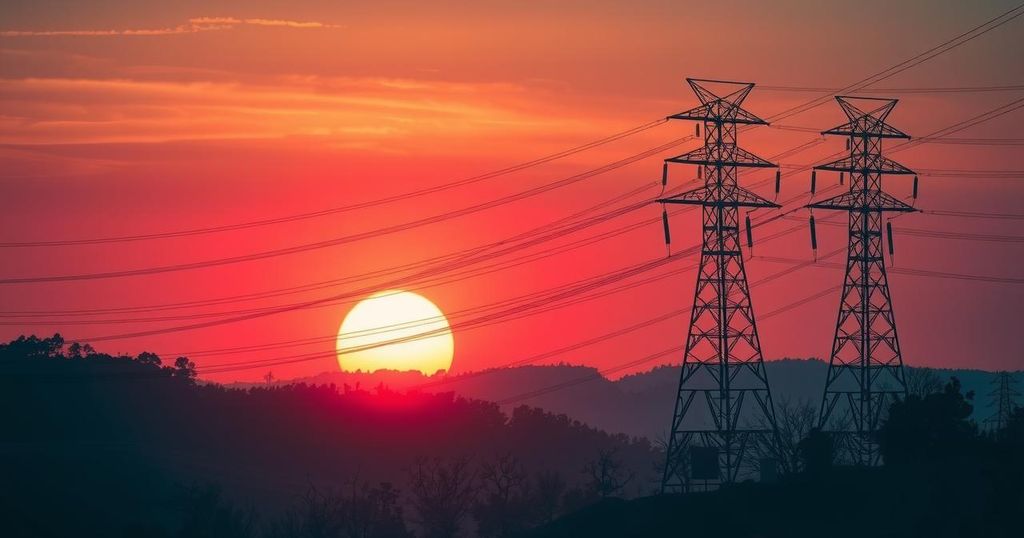Chile has restored power to most of its 19 million residents after a significant blackout, with roughly 220,000 still without electricity. The government imposed a curfew due to the outage that affected 98% of the population. Investigations are ongoing regarding the causes of the blackout and its related fatalities, alongside calls for increased government oversight.
Power has been restored to the majority of Chile’s 19 million citizens following a major blackout, the most substantial in 15 years, according to government officials. The blackout left nearly 98% of the population without electricity, prompting the imposition of a strict curfew. Interior Minister Carolina Tohá announced that while electricity has been restored to most regions, around 220,000 residents still remain without power, particularly in the northern areas where the outage initially originated.
An investigation is currently underway to determine the reasons behind the blackout, which was triggered by a fault in a key transmission line. This fault initiated a cascade of shutdowns across various power plants and transmission lines throughout the country. Additionally, Tohá indicated that authorities are looking into the circumstances of three fatalities linked to the blackout, particularly involving individuals reliant on medical equipment.
As public transportation services, including trains and subways, resumed in Santiago, the government decided not to extend the state of emergency that had been due to expire. Authorities reported over 200 arrests made due to violations of the nighttime curfew. In Maipú, a suburb of Santiago, residents anxiously awaited the restoration of electricity and water supplies.
Several commuters faced difficulties navigating city streets due to non-functioning traffic lights. In response to safety concerns, Tohá stated that additional security forces would be deployed to manage traffic. This blackout marked the most significant disruption since the devastating earthquake and tsunami in 2010 that incapacitated communications and power across Chile.
President Gabriel Boric expressed dissatisfaction with the energy transmission companies, asserting that they would face scrutiny for their role in causing the blackout. He specifically mentioned that the faulty transmission line belonged to ISA InterChile, emphasizing that it is unacceptable for the daily lives of millions to be impacted by private companies. Furthermore, critics have underscored the need for the state to play a more active role in managing electric infrastructure in Chile, a system that has largely been operated by private entities since the era of Augusto Pinochet’s dictatorship.
In conclusion, the recent power blackout in Chile has affected millions, prompting a swift governmental response to restore electricity and ensure public safety. While most regions have regained power, investigations continue into the causes of the outage and the unfortunate deaths related to it. Moreover, this incident raises important questions about the reliance on private companies for essential services, highlighting the need for potential reforms in the handling of electricity infrastructure.
Original Source: www.theguardian.com






